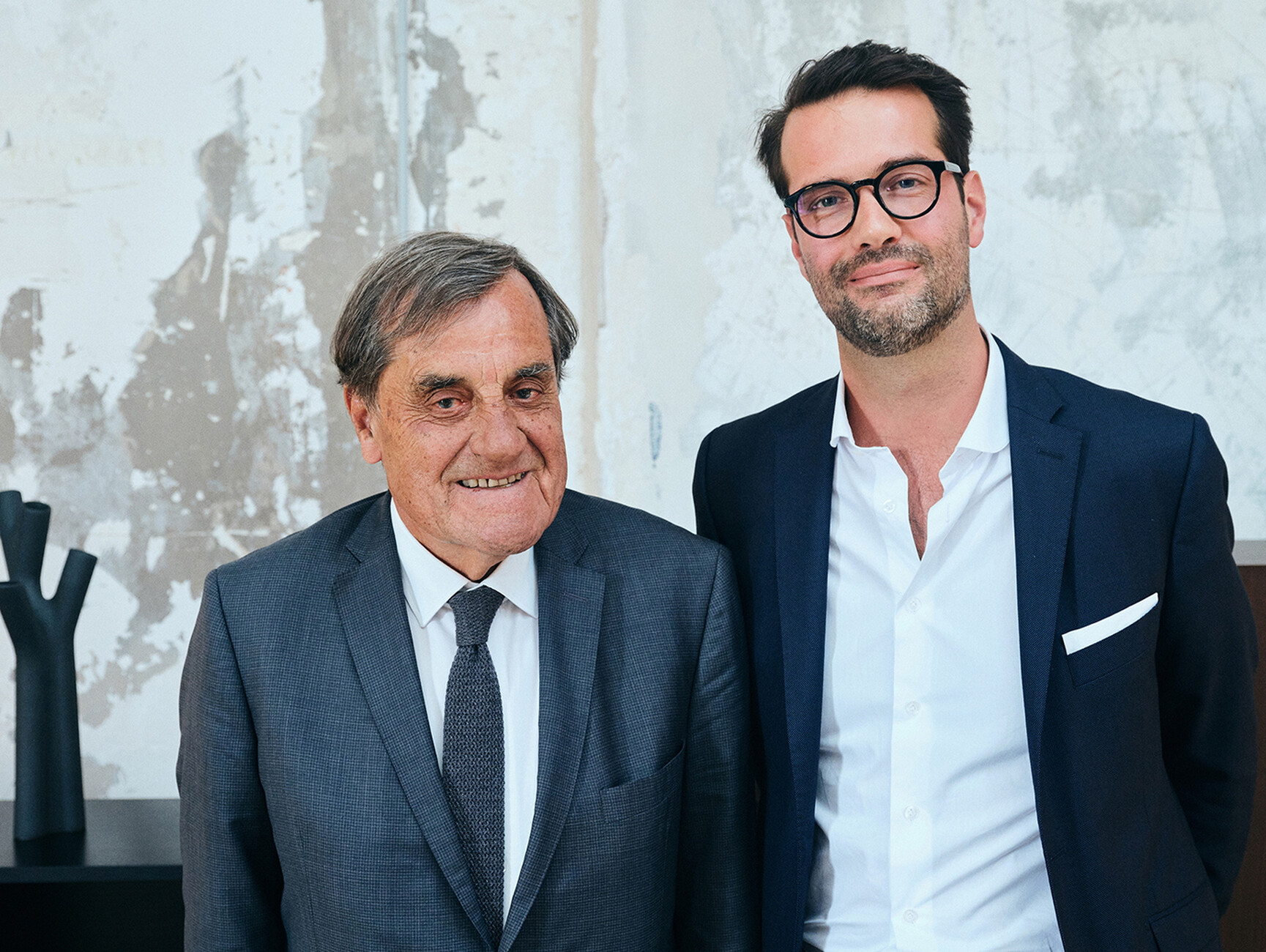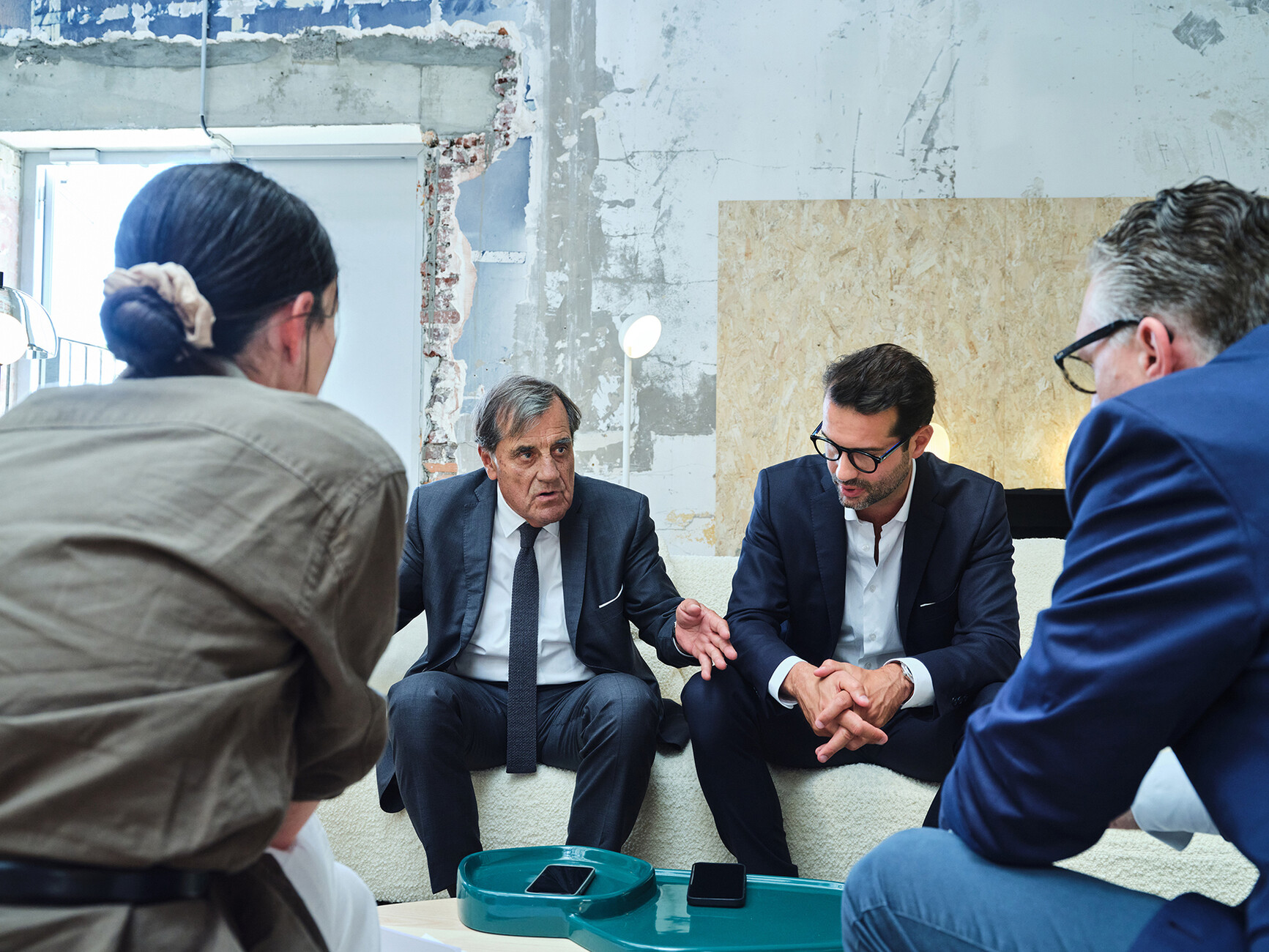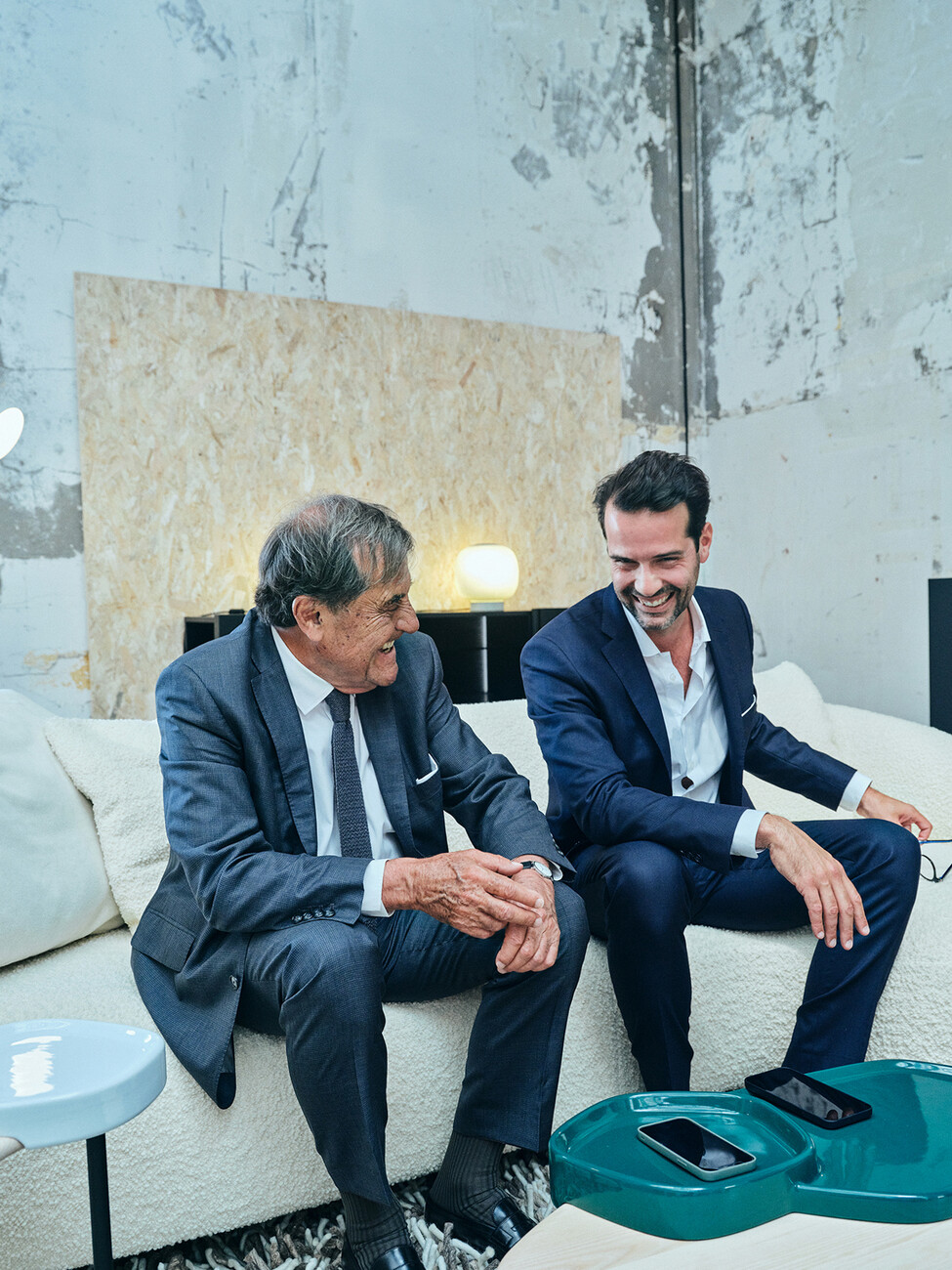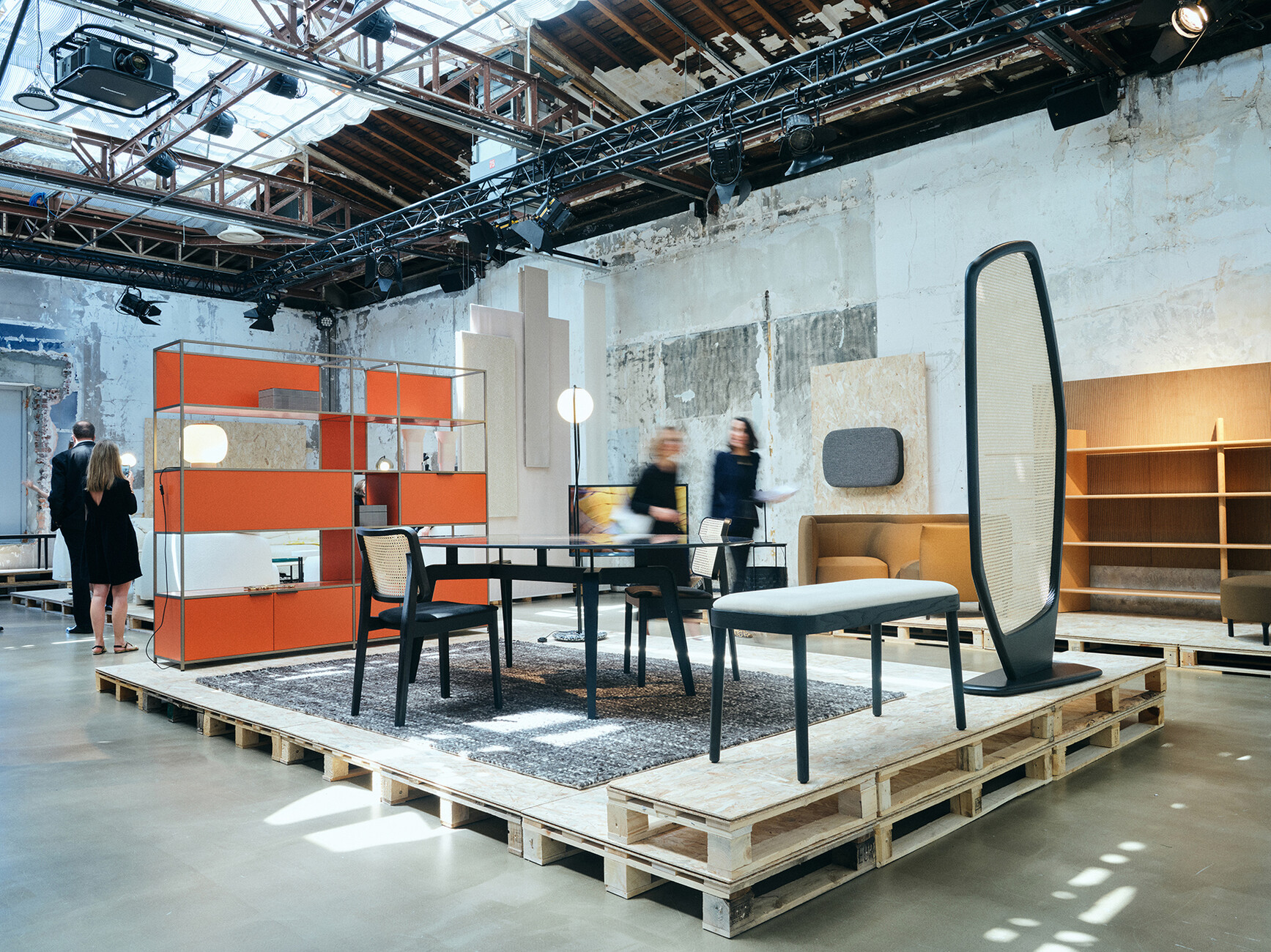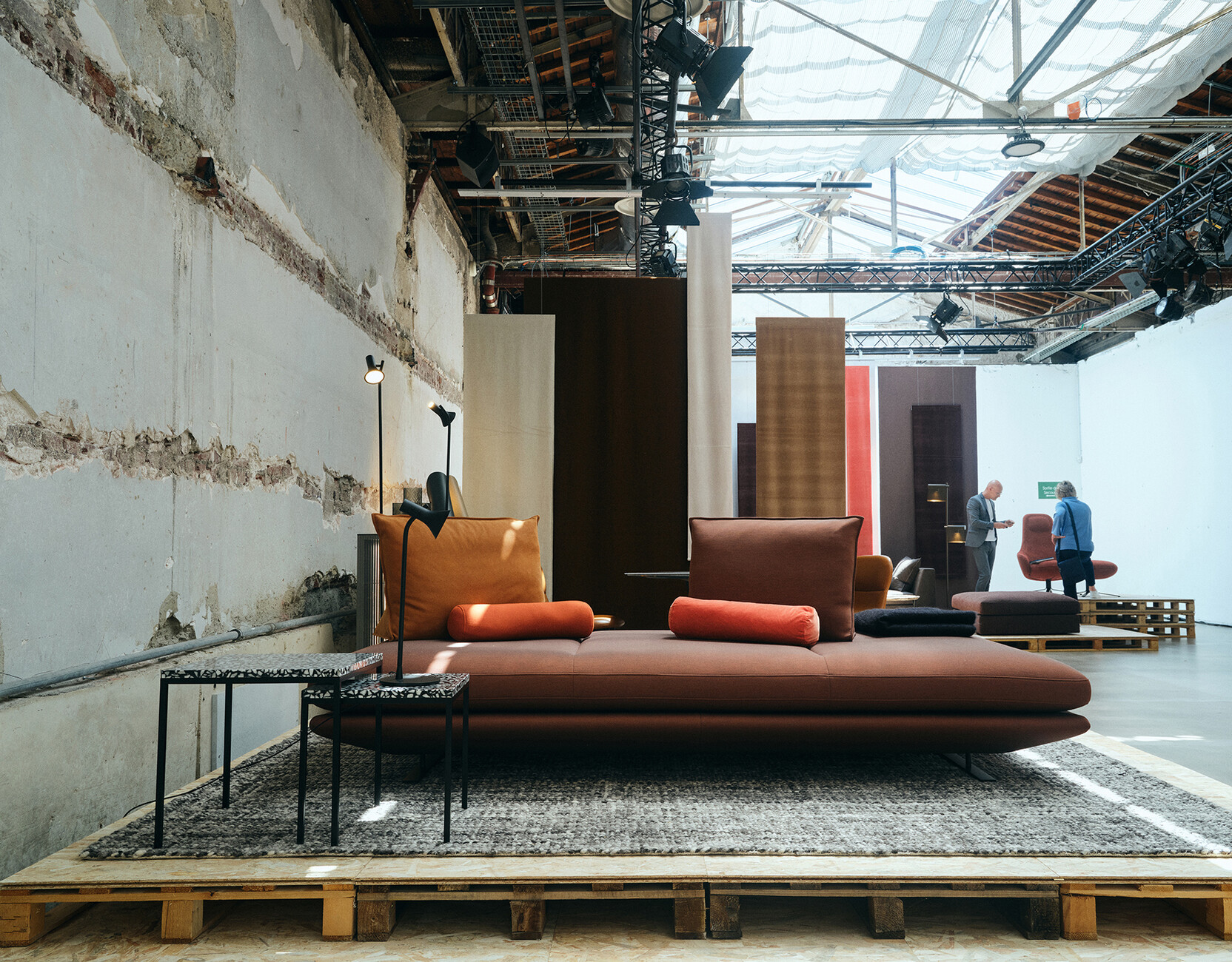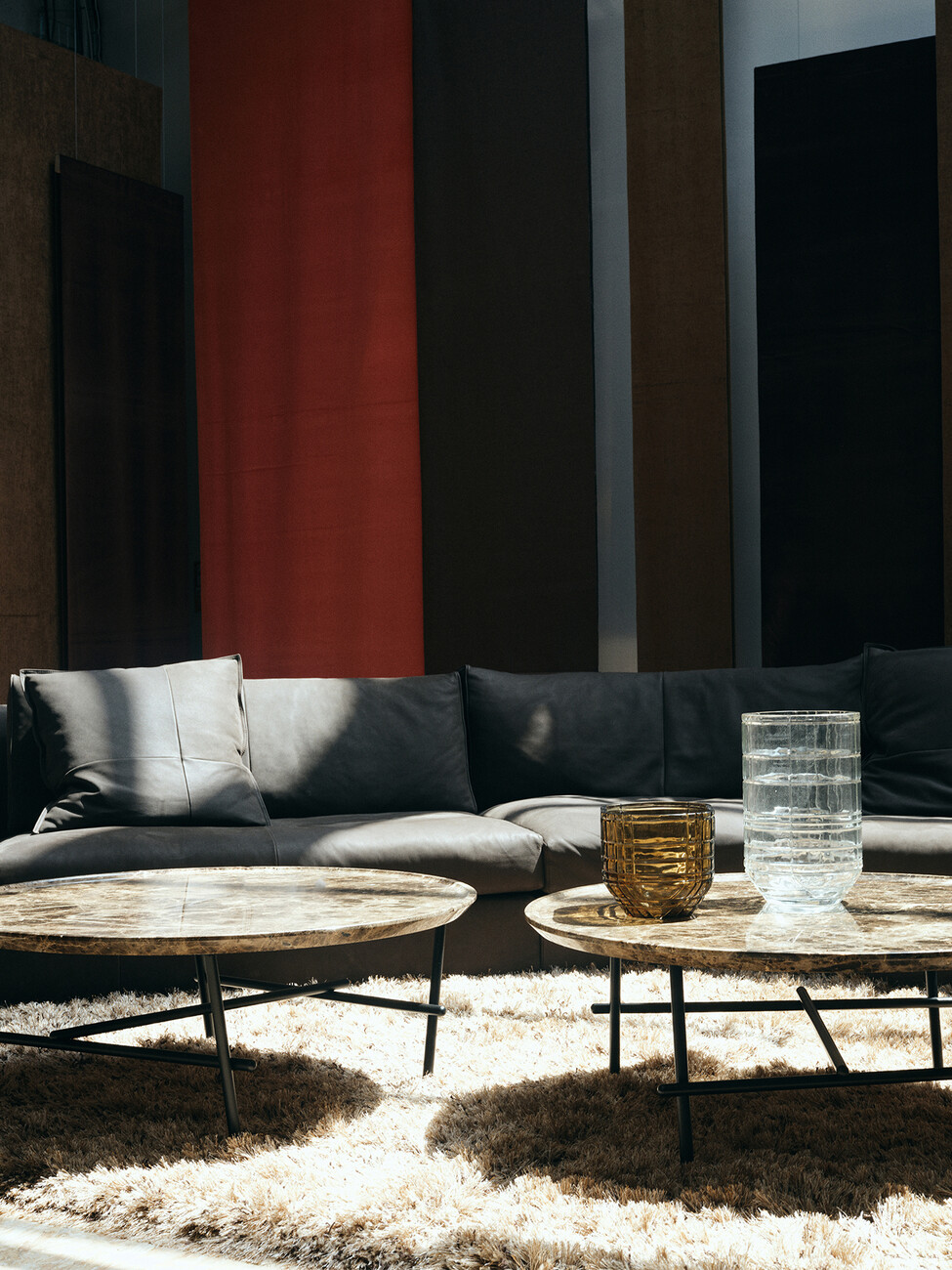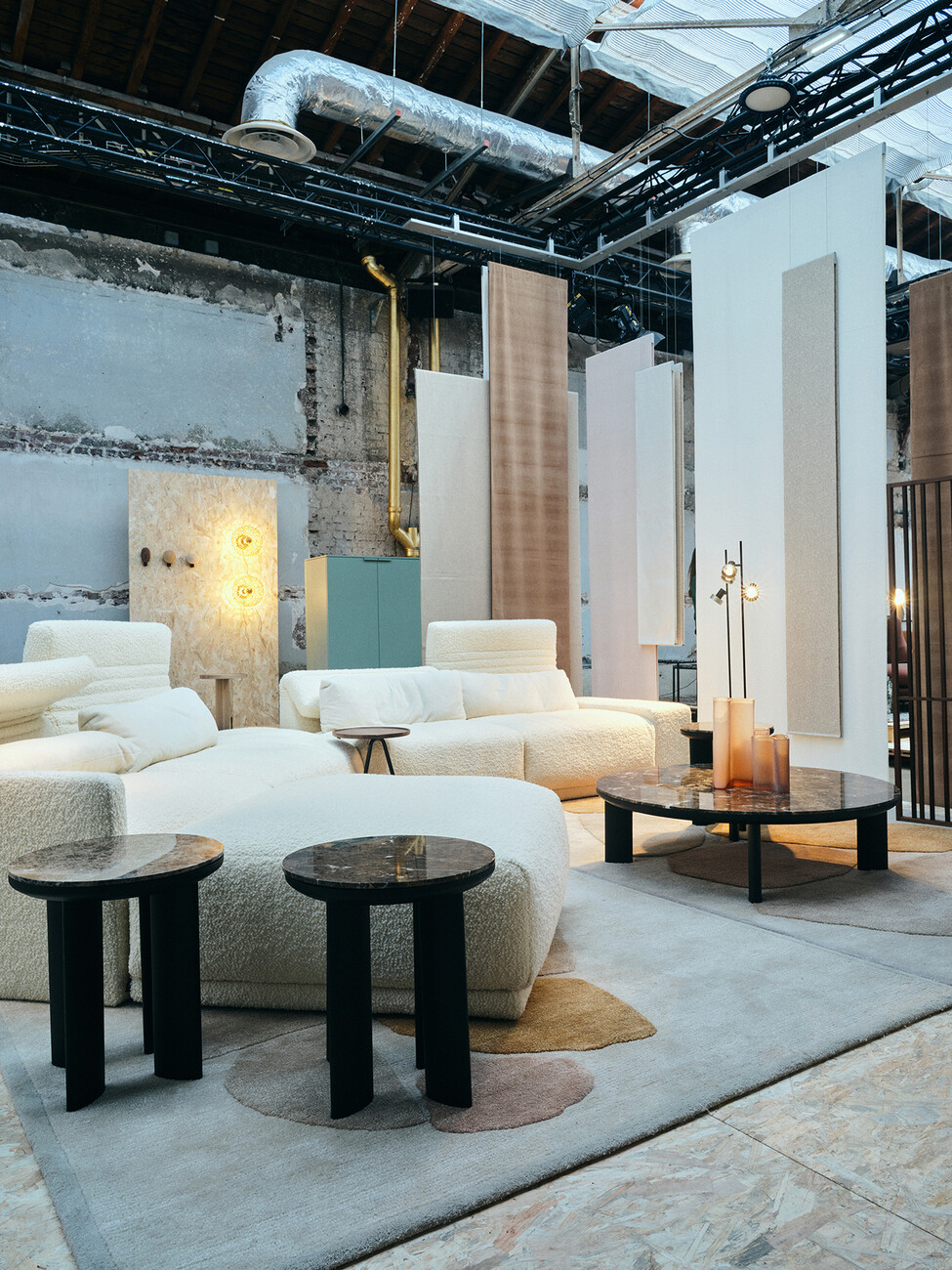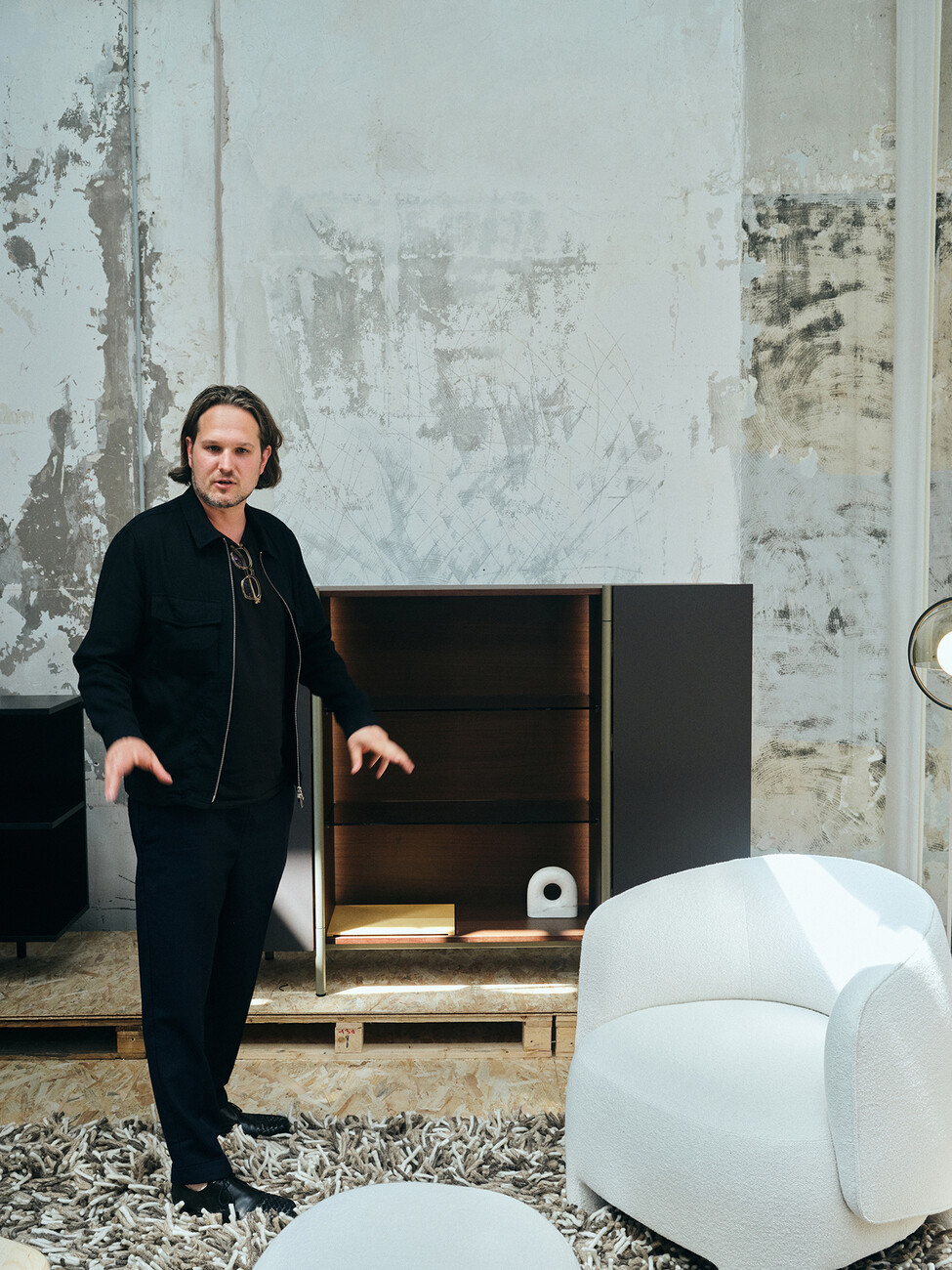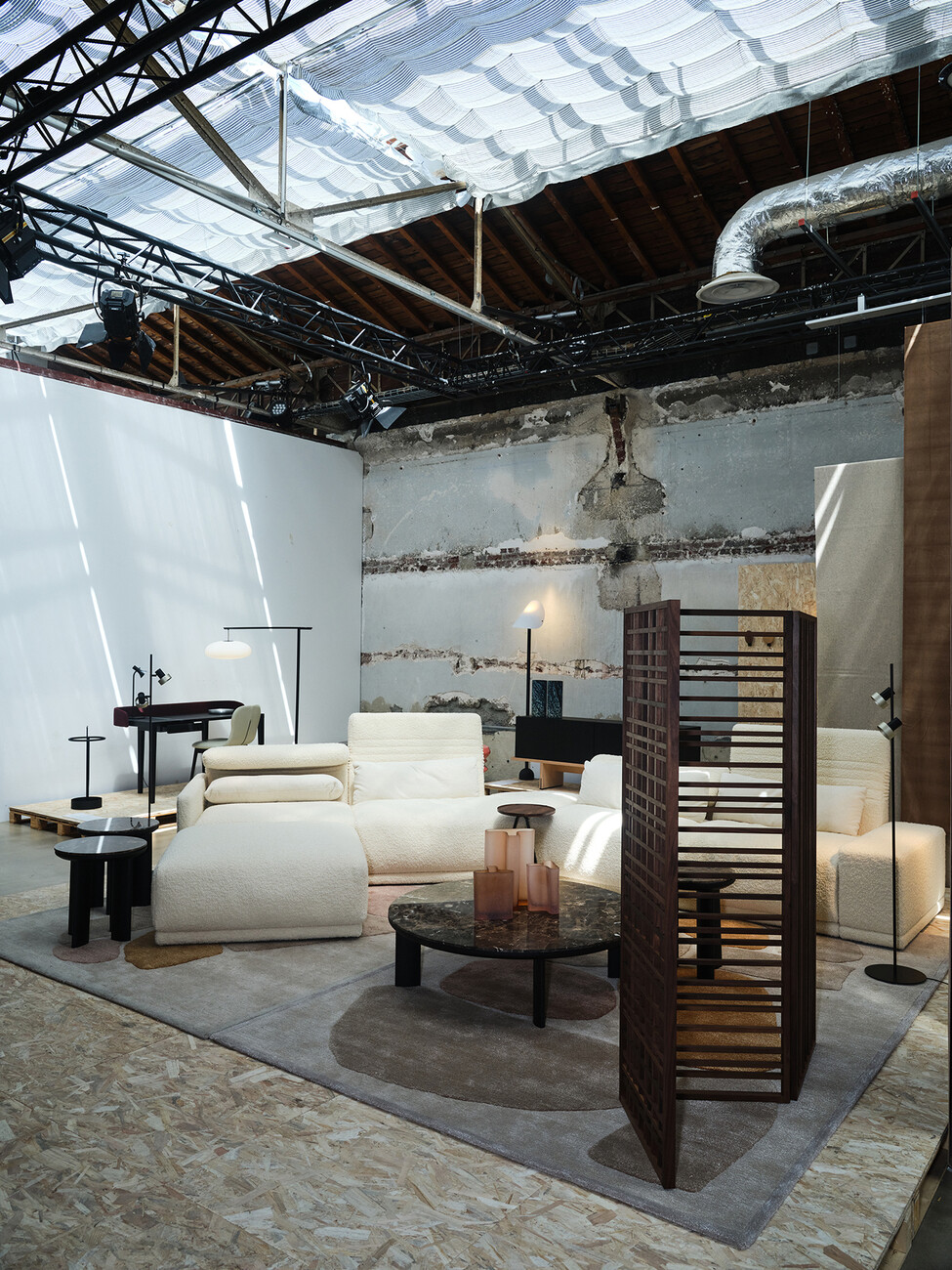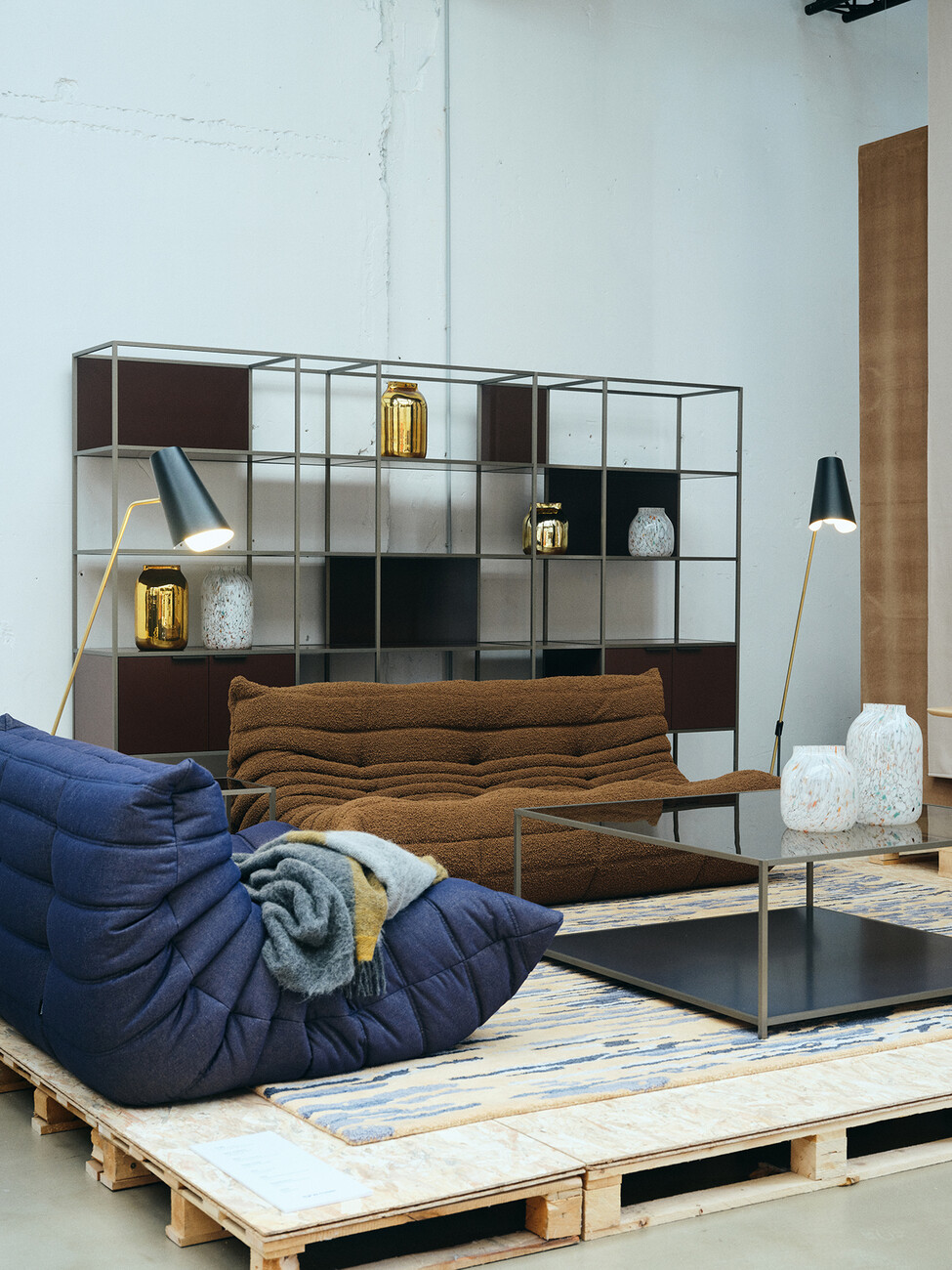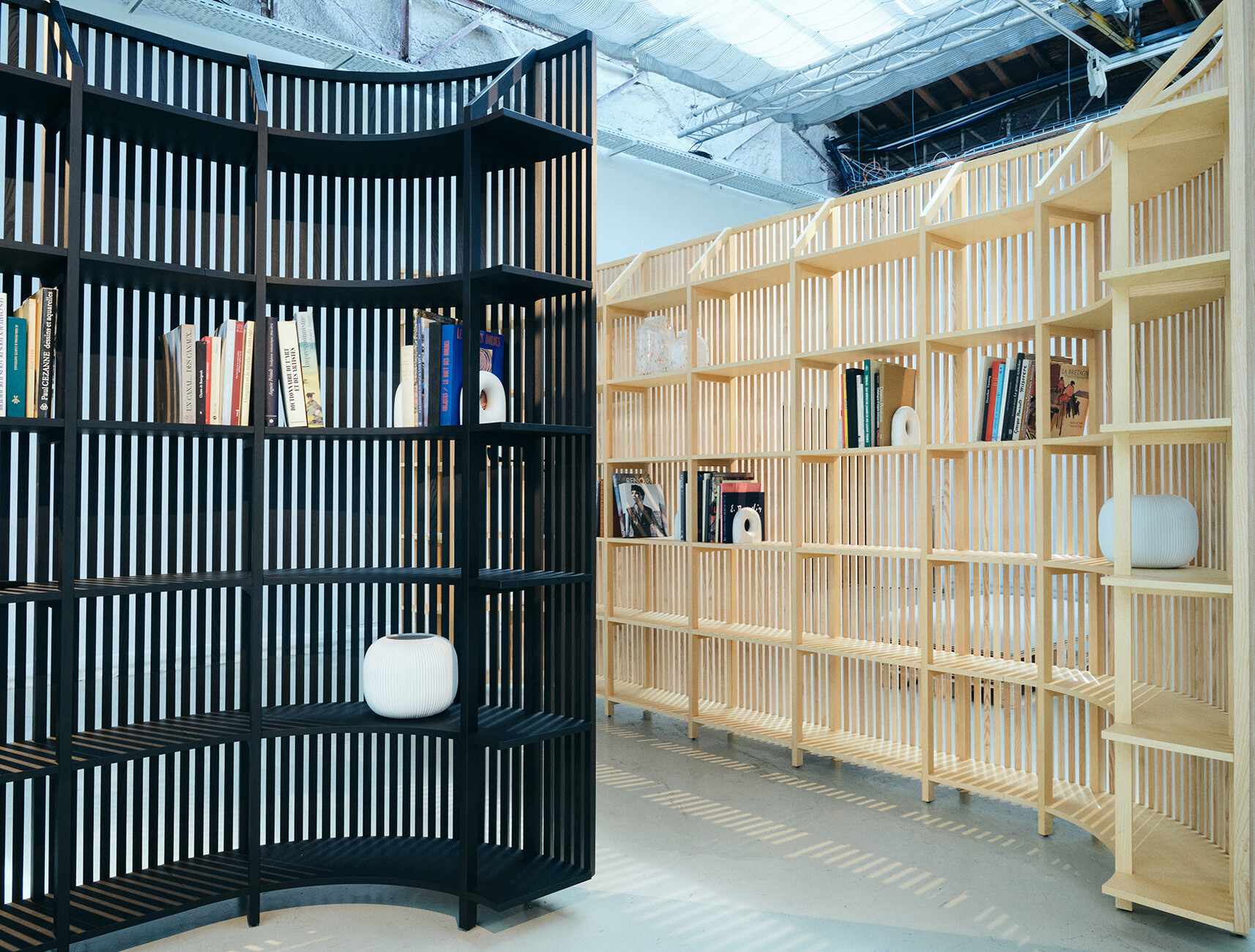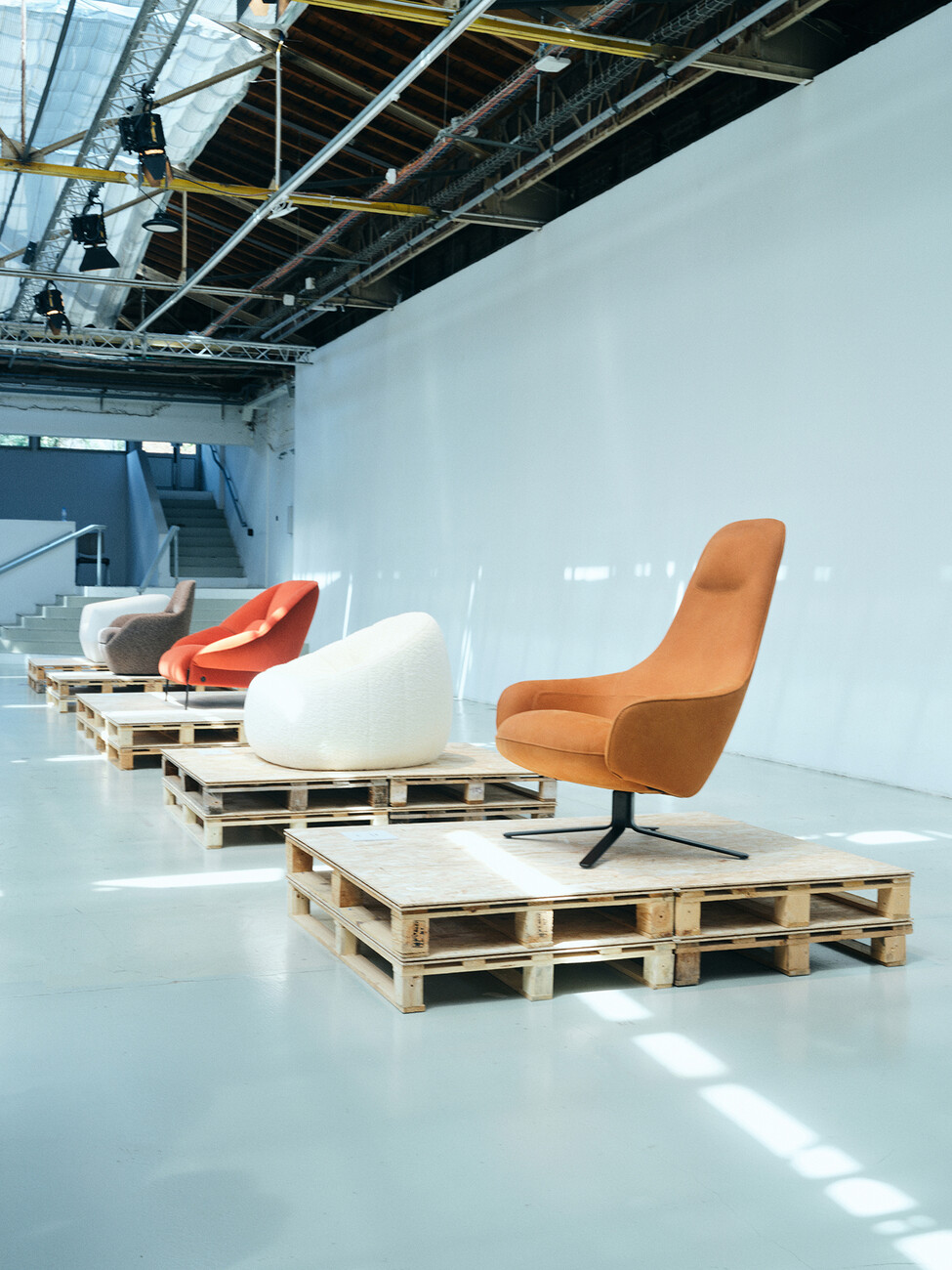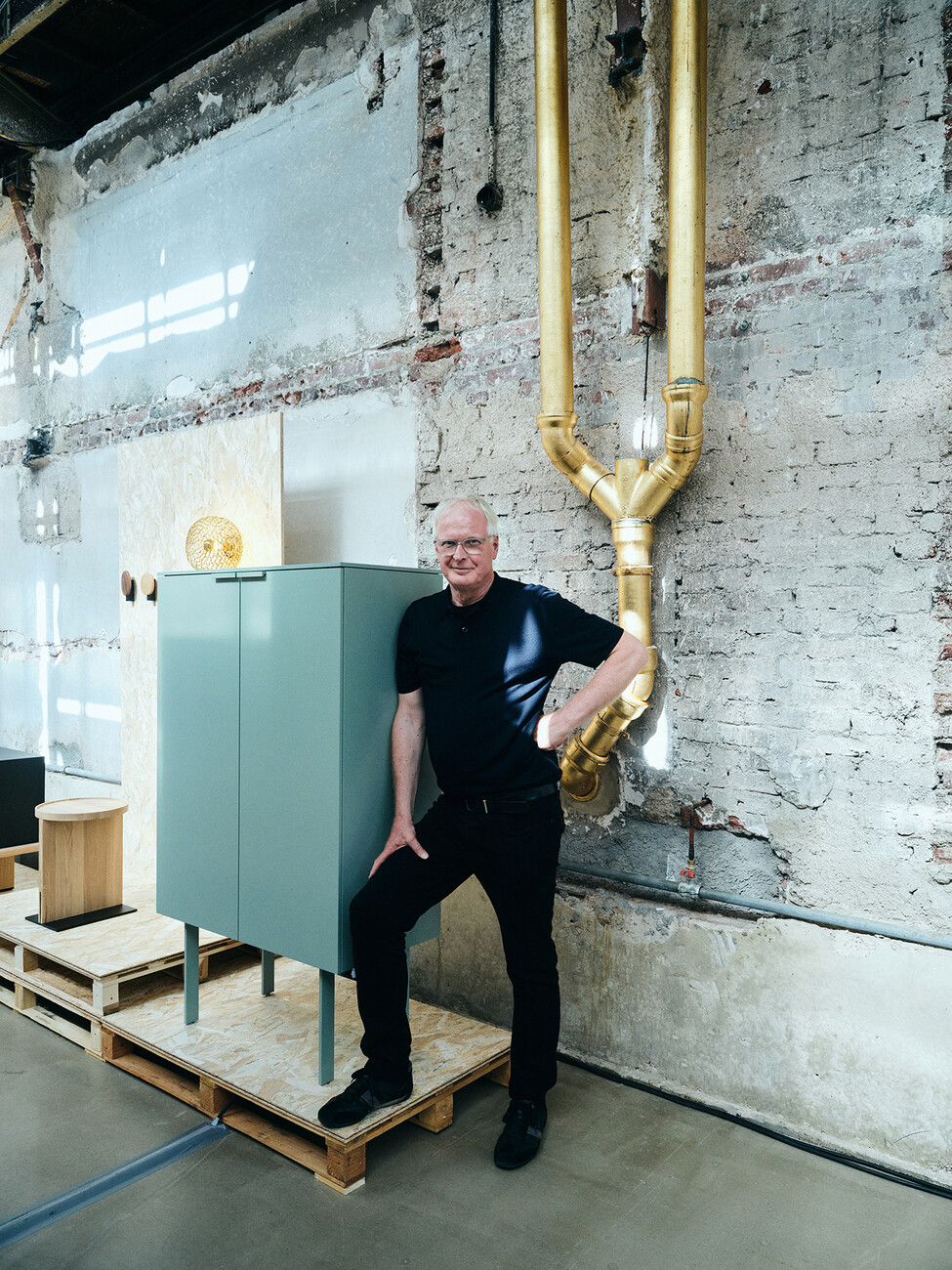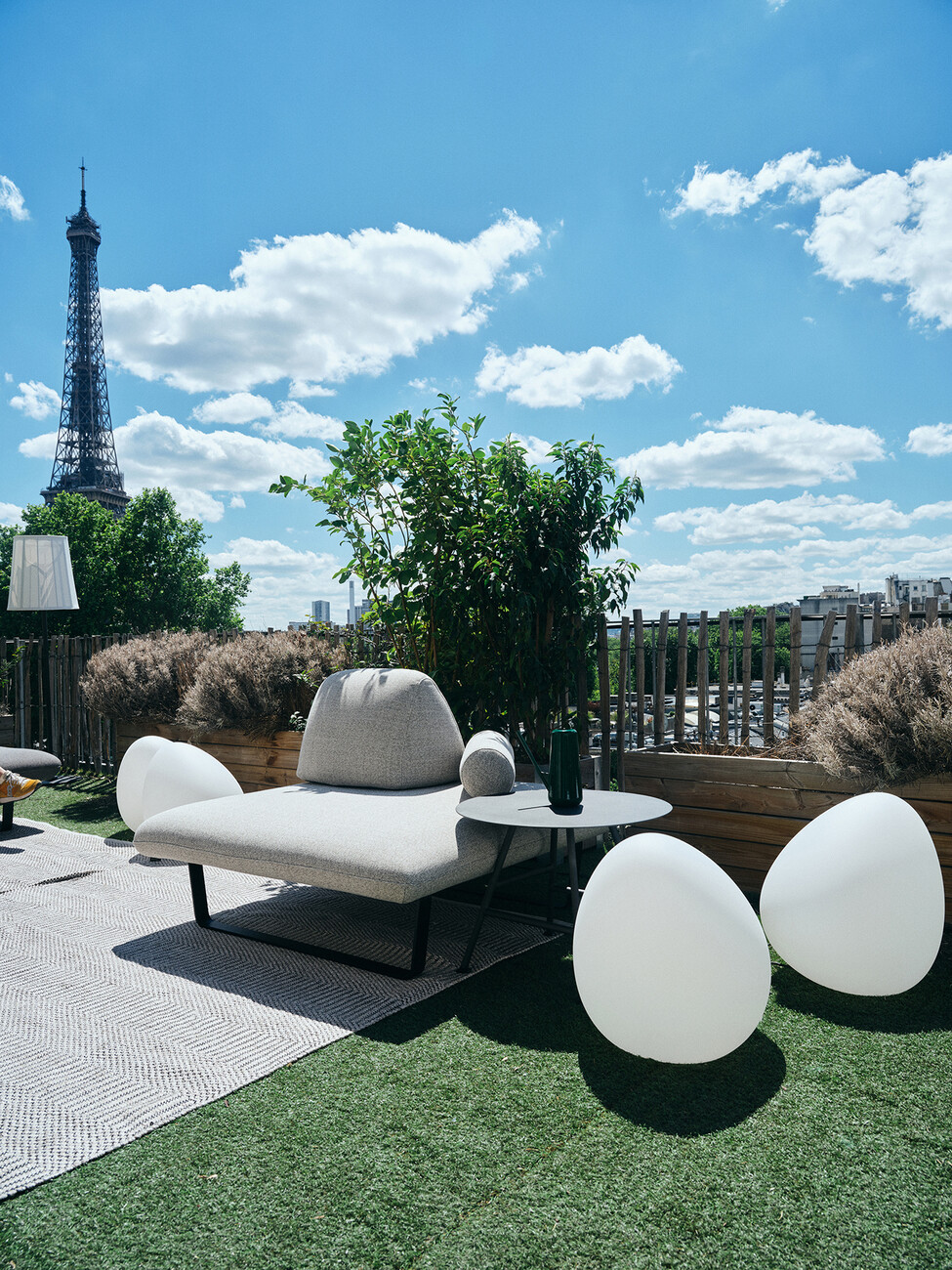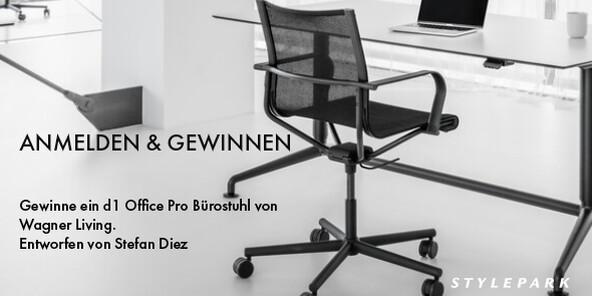From one generation to the next
Robert Volhard: Pierre and Antoine, we have the honour to meet you today in an outstanding building, the Palais de Tokyo. A place where only the best brands, artists and designers exhibit. Antoine, you've taken over the marketing lately. Is this a foretaste of what you have in mind for Ligne Roset in the coming years?
Antoine Roset: We don't know how long we will stay at the Palais de Tokyo but we like it here. It is a partnership that we started two years ago. Last year, however, was a short year, everything was digital only. But Covid19 gave us the chance to change the way we work. We have been in this fair system for years, or decades, and honestly, we were happy with it. But suddenly the system stopped, so we had to try something new.
Pierre Roset: The place here is very different from a booth at a fair. First of all, the place is known as a museum of modern art. And then we are in Paris. Even if the exhibition space is as big as in Cologne, 800 or 850 square meters, it's a different atmosphere, there is natural light and fresh air.
Estelle Marandon: The Ligne Roset brand is still in family hands. Pierre, you are the fourth generation, Antoine the fifth. How do you manage the responsibilities within the family?
Pierre Roset: Antoine and Olivier (Ed. his cousin) have different tasks and are specialized in their fields. Olivier is responsible for finance and production, Antoine for marketing and products. As far as my brother and I are concerned, Michel is still in charge of the collection and relations with the designers, as he is very familiar with this subject. And I am responsible for a wide range of programs, at the moment I am working on the creation of a school for seamstresses and upholsterers.
Antoine Roset: Olivier and I took over all the operational management. The market, fixing problems and the production part. We are constantly exchanging ideas with each other, that is our great strength. But there is also the CEO and the president. It's not our job to make all the decisions alone today. We are in a time of change. It's very important for us to continue to have our fathers on board, it helps us a lot. We are still in a learning curve you never stop learning in a way.
Estelle Marandon: How can we imagine your conversations? Is it easy to work together as a family?
Antoine Roset: Most of the time, yes. Sometimes there are issues, like your retirement (smiles at his father) but we are always open. We are the ones pushing to change things. Our fathers have been there for 40 years or more. For them everything is easy, they push a button, it's all routine. We challenge them. And when you challenge, you must accept that there is friction, we cannot always agree.
Pierre Roset: But I must admit that I am 74 years old and that at my age you can't keep up with everything. There are new ways and solutions. Production is so specialized now that we have machines. The cost of such a machine will range from 200,000 to almost 1 million. For me it is difficult to understand what the return on investment is.
Robert Volhard: Should the company remain in family hands?
Antoine Roset: My grandfather was president and CEO and passed the company on to his two sons. My cousin and I were already working, we had the expertise they were looking for. Me for the commercial and Olivier for the financial part. But Olivier and I will definitely introduce a process in the future. It is important for us to have someone who is able to manage the company and lead it into the future. The company will remain family-owned, but the management could also be taken over by someone else if needed.
Robert Volhard: You are known for working with very well-known designers and newcomers alike. It is, in a way, the DNA of the company. It's not just about the selection, it's about giving the designer the freedom, the knowledge, and the tools to develop the product that stands for the designer, but also for Ligne Roset. I think those are the biggest shoes you have to fill. Antoine, what are your plans in this regard?
Antoine Roset: Michel is teaching us how he works, and we are learning from him every day. He involves us in the process of product selection and things like that. If at some point we realize that Olivier and I are not able to fill that part properly, we can always appoint an artistic director. The good thing is that Ligne Roset is extremely trusted by the design industry.
Pierre Roset: In my opinion, the relationship with the designers has always to be led by the top of the management. We have so many engineers working in the factory saying, why do you make things so complicated? We can easily solve the problem by using this and that, we can avoid this colour, why do we have to use it? Only the boss can say: it's like this because I want it like this, this is my design, end of discussion. That is the beginning of the story.
Robert Volhard: We from Stylepark are a big Pierre Paulin fan. That's why we are very interested in the legacy you oversee. What are your plans to continue it? You certainly have a lot more to show off.
Pierre Roset: From the beginning, it was a relationship between Pierre Paulin and my brother. Unfortunately, Pierre Paulin passed away. Now his son and his wife manage the legacy of the Paulin brand. With Paulin, the relationship was very direct, because he deliberately chose Roset.
Antoine Roset: We are his first editor, which gives us the opportunity to bring his ideas and legacy back to the market. We haven't been a new producer for a few years, but we still working with the Paulin family to release products and we will certainly bring new one to market. If not next year, then the year after. The good thing is that Pierre Paulin's catalogue is very rich.
Estelle Marandon: You have created a new project called Ligne Roset Re, which is about up- und recycling. How exactly does it work?
Antoine Roset: In France, customers can give back their old Togos and get a voucher to buy a new one. When we deliver the new one, we take the old one to recycle it properly or reupholster the structure if it is in good condition with a cover made with a PET fabric. Then we put it on the Ligne Roset (re) website, at a very good price, about 40 percent less than the retail price, because it's second-hand, but with a manufacturer's guarantee. We hope to be able to develop a similar model in other countries soon.
Estelle Marandon: Why doesn’t it exist for other Roset products?
Antoine Roset: With Togo it is feasible because it is easy to carry it back. For everything else, the costs would be too high, and we would probably lose the business in six months.
Estelle Marandon: Is this also a way to counter the huge Togo second-hand market?
Antoine Roset: Genuine vintage products are perfectly fine for us. A product that you don't change, that has been used and that you sell afterwards. What we don't like is the second-hand market that is made around the product, especially Togo. That's a huge problem because some people take the old Togo, change the cover, and suddenly they become a manufacturer of covers that they upholster. But the customer is not buying a Roset anymore. If you buy a BMW, take it to the mechanic and they install a completely different engine, is it still a BMW?
Robert Volhard: You are in the extraordinary situation that everyone wants to be in. There are very long waiting lists for your products, like in the car industry. Can you explain where the long delivery times of about 14 months come from and if there is a way to avoid them?
Antoine Roset: Due to Covid we had a huge increase in the bestsellers 18 months ago, they saturated our production. There is about an eight-month delay on the market. We are a bit above that, but in terms of production time. Not to be confused with the selling time, which is connected to the shop. There, we are at eight to nine months, sometimes maybe ten. To avoid too long delays, we told retailers to stock orders for the bestseller products where we accept to change the materials. This means that the fabric and colours have to be ordered four months before the products leave the factory. So, if a product was stocked six months ago, you can change the cover and fabric and the due date would then only be six months.
Robert Volhard: For other industries, the pandemic had a negative impact. For Roset, it was more than an accelerating effect. How do you explain this?
Antoine Roset: We are part of the leisure industry. We used to be the last to go when you were thinking about a purchase. Before you replace your sofa or carpet, you can wait. People preferred to fly to the Bahamas, go to a restaurant or the theatre. Well, that changed because during the pandemic we were forced to stay at home, we couldn't travel. So suddenly we were the first and only ones to invest in.
Estelle Marandon: You talked about the fact that you recently opened an upholstery training centre. How did this decision come about and what is your motivation behind it?
Pierre Roset: If you look at how to become a good upholsterer, it takes at least a year, for a seamstress at least six months. So that's one of the first reasons for it.
Antoine Roset: Pierre and Michel managed to keep the workers for a very long period. But the problem is that when you have a team that stays with you for so long, they all leave at the same time. The other issue is productivity. When you hire someone new, their productivity is 20 percent, maximum 30 percent for a year, which is difficult, and then you take the best one to help them grow, and you reduce it to 70 percent. So that's not good. In the training centre people accomplish their skills within six months. When they arrive, their productivity is now 50, 60 percent. So we have gained a lot of time and they are also able to reproduce something because they have been trained on the product.
Robert Volhard: Ligne Roset was founded in 1860, the fifth generation is about to take over. What is your vision for the next ten years?
Pierre Roset: To become a very good golfer. With a handicap under ten. (laughs)
Antoine Roset: I will work on my handicap a little later (laughs). For Olivier and me, it's about making the generational transition and continuing to build the company that Michel and Pierre developed. To continue my grandfather's legacy and to remain among the leading designers in the furniture industry. Today we are responsible for 850 employees. It is our responsibility to make this company profitable and grow.
Pierre Roset: And to avoid the big mistake.
Robert Volhard: What could this be?
Antoine Roset: Wanting to grow too fast and bringing investors on board. Because the day the investor wants to sell, you lose control of your company. We are a family business and one hundred percent in control of the creativity, the quality of the products and the choice of designers. If we make a mistake today, we have to deal with it, but then we move on. Opening our shareholding will be our last solution.
